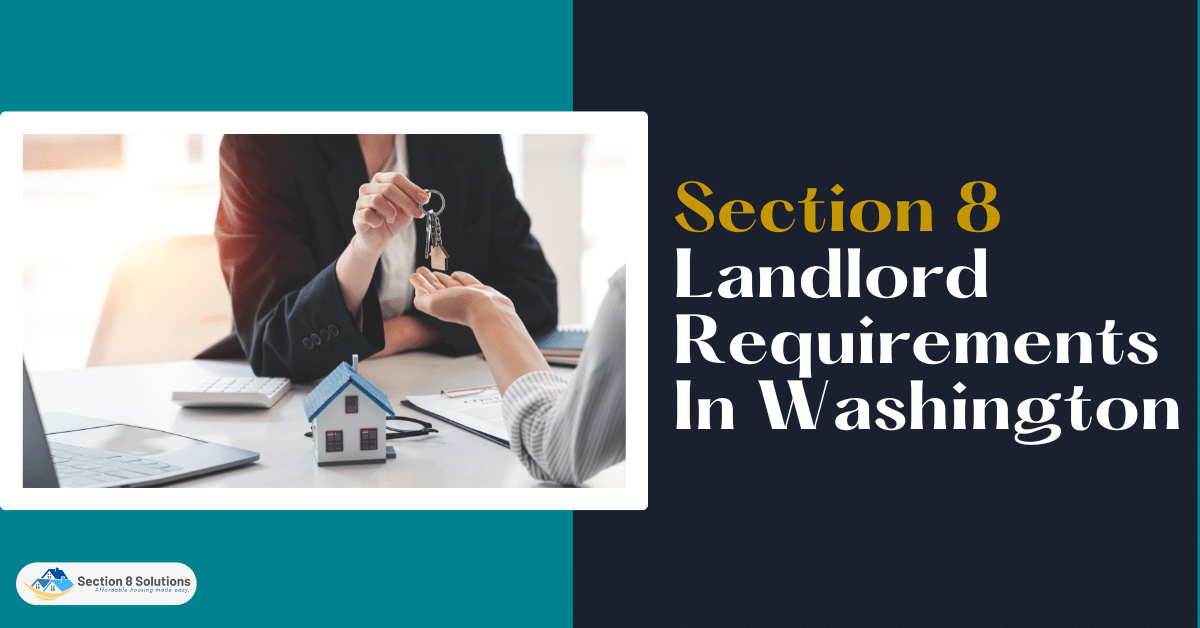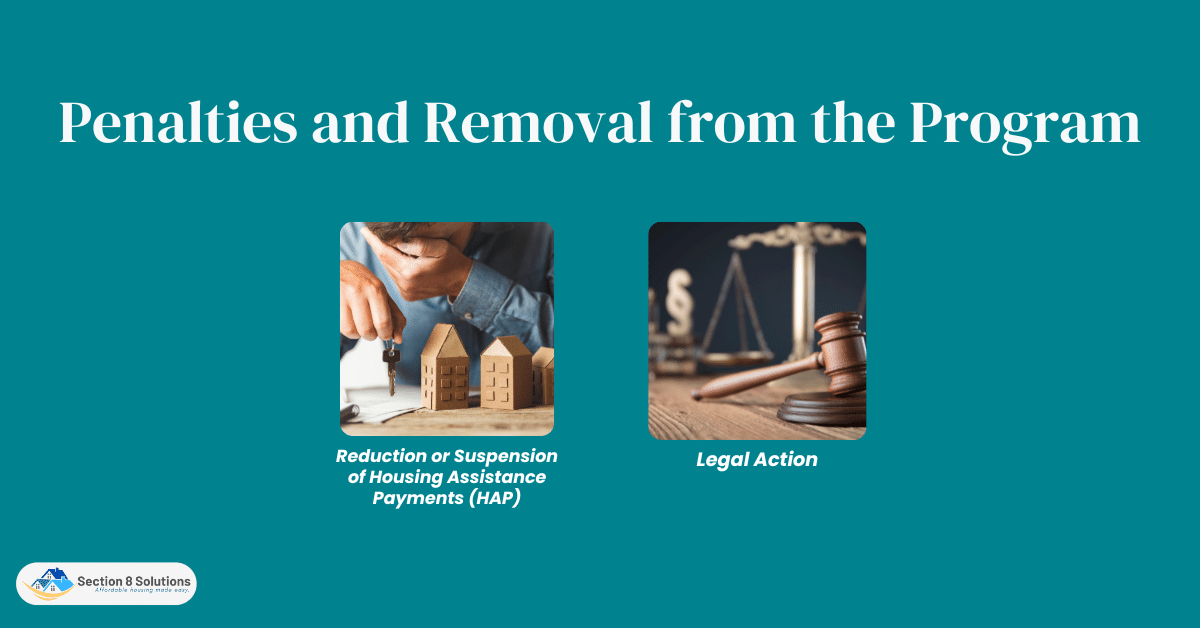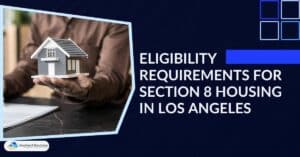In Washington, landlords who participate in the Section 8 housing program have certain requirements they must meet. These include complying with fair housing laws, maintaining the property to certain standards, and properly screening and selecting tenants. Landlords who fail to comply may be penalized or removed from the scheme.
In this article, we will explore the main landlord requirements under Section 8 in Washington, including compliance with fair housing laws, property maintenance standards, tenant screening and selection, lease requirements, record keeping and reporting, and penalties for non-compliance.

Compliance With Fair Housing Laws
Washington Section 8 landlords must follow fair housing legislation. As a landlord, you must comprehend federal and state fair housing laws that protect tenants from race, gender, religion, handicap, familial status, and other protected characteristics.
Refusing to rent based on race, gender, religion, or other protected characteristics is illegal. Landlords cannot discriminate against tenants with protected characteristics or retaliate against them for exercising fair housing rights.
Landlords must screen tenants without discriminating against protected classes. Income, rental history, credit history, and criminal history are acceptable screening criteria if used equally by all candidates. Landlords should document screening standards, use objective factors, and treat all applicants equally to avoid discrimination.

Property Maintenance Standards
Washington Section 8 landlords must also provide safe and habitable homes. Annual property inspections assure compliance for landlords. A housing authority representative inspects the property to ensure it satisfies program requirements.
Landlords must fulfill basic standards for plumbing, electrical, heating, and structural integrity. The property must be safe and well-lit. Landlords must fix faults found during inspections or risk being removed from the program.
Poor heating, hot water, electrical systems, mold, pests, or damaged windows and doors are common home maintenance violations. Non-compliance might result in sanctions or expulsion from Section 8. Landlords should be proactive about property management, correcting faults quickly and meeting or exceeding the program’s minimal property standards to avoid these repercussions.

Tenant Screening and Selection
This section covers tenant screening and selection for Washington Section 8 landlords. Thorough screening and appropriate screening standards will be discussed. This protects landlords’ interests while ensuring tenants’ safety.

- Determine your screening criteria: As a landlord, you should determine the acceptable screening criteria that you will use to evaluate potential tenants. This may include factors such as income, credit history, rental history, employment history, and criminal background.
- Advertise your vacancy: Once you have determined your screening criteria, you can advertise your vacancy to potential tenants. This may include online listings, local newspapers, or other forms of advertising.
- Receive and review applications: When tenants apply for your rental property, you should review their applications thoroughly. This may involve verifying their income, rental history, and employment status. You may also want to run a credit check and background check to further evaluate their qualifications.
- Conduct interviews: If you have a large number of applicants, you may want to conduct interviews with the most promising candidates. This can help you get a better sense of their personalities, lifestyles, and goals.
- Make your selection: Once you have completed the screening process, you can make your selection based on the applicants who best meet your screening criteria. You should make your decision objectively and avoid any discrimination or bias.
These techniques help landlords choose reliable, responsible tenants who can meet their lease obligations. Landlords can assure fairness for all applicants by utilizing acceptable screening procedures and avoiding discrimination.
Lease Requirements
Lease requirements are an essential aspect of the Section 8 housing program in Washington. Under this program, landlords must comply with specific lease requirements that have been set by the government.
The lease agreement outlines important terms such as the lease duration, rent payment, and late fees. For instance, landlords must set a reasonable rent amount that is comparable to the local market rent, and tenants must pay their portion of the rent on time.
The lease agreement lists landlord and tenant responsibilities. Tenants must repair and pay for utilities not covered by the landlord. The landlord must maintain the property and make repairs.
Eviction or program termination might result from lease violations. Thus, landlords must understand and follow Section 8 lease requirements. Landlords may safeguard their interests and provide safe, affordable housing to tenants by doing so.

Record Keeping and Reporting
Record keeping and reporting are essential components of the Section 8 housing program in Washington. As a landlord participating in this program, you must maintain accurate records and submit regular reports to the local Public Housing Authority (PHA).
The record-keeping requirements include documentation of tenant income verification, lease agreements, and other necessary paperwork. Landlords must also keep records of any repairs or maintenance performed on the property.
In addition to record keeping, landlords must also comply with reporting requirements and deadlines. For example, landlords must submit monthly housing assistance payment (HAP) requests to the PHA on time, and provide any required documentation promptly.
Recordkeeping and reporting violations can lead to delayed payments or program termination. Thus, landlords must understand and follow recordkeeping and reporting requirements. By doing so, landlords may provide safe, affordable housing while complying with program restrictions.

Penalties and Removal from the Program
There are several penalties and fines that landlords may face for violating the program rules under the Section 8 housing program in Washington. These include:

1. Reduction or Suspension of Housing Assistance Payments (HAP)
If a landlord fails to comply with the requirements of the Section 8 housing program, the PHA has the authority to reduce or suspend Housing Assistance Payments (HAP) to the landlord. HAP is the portion of the tenant’s rent that is paid directly to the landlord by the PHA on behalf of the tenant. The reduction or suspension of HAP can be a significant financial loss for the landlord, as it means that the landlord will not receive the full rent payment for the rental unit.

4. Legal Action
In some cases, non-compliance with Section 8 program rules may result in legal action, such as a lawsuit brought by the tenant or the PHA. This can be a costly and time-consuming process for the landlord and can result in significant damage to their reputation.
It is important for landlords participating in the Section 8 housing program to comply with all program requirements in order to avoid these penalties and fines. By doing so, landlords can protect their own interests while also providing safe and affordable housing to their tenants.

Conclusion
As a Washington landlord, Section 8 offers guaranteed rent payments and tenant screening assistance. Landlords must understand and follow the program’s rules to avoid penalties and termination.
Washington Section 8 landlords must comply with fair housing regulations, property maintenance standards, tenant screening and selection, lease requirements, and record keeping and reporting. These violations can lead to program termination, housing aid reduction or suspension, and fines.












